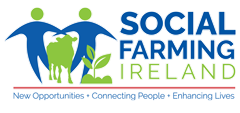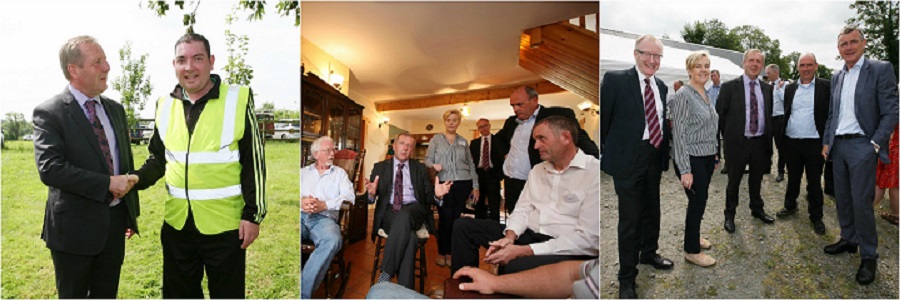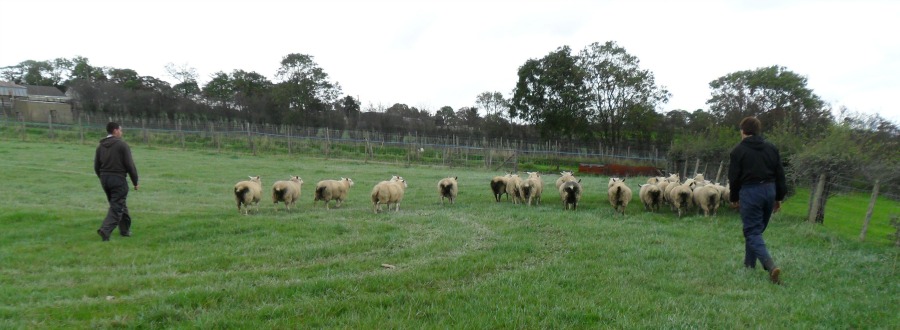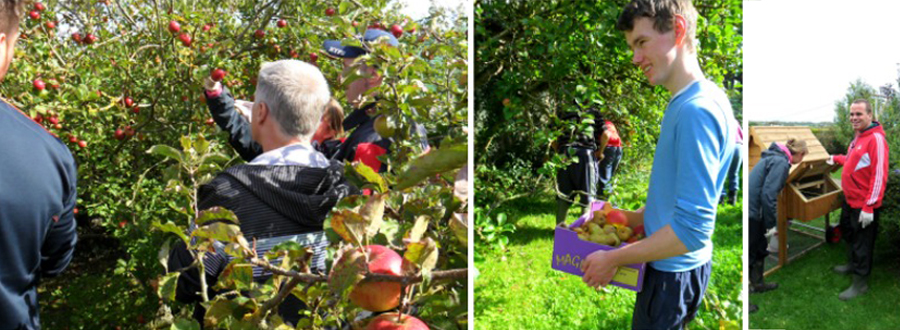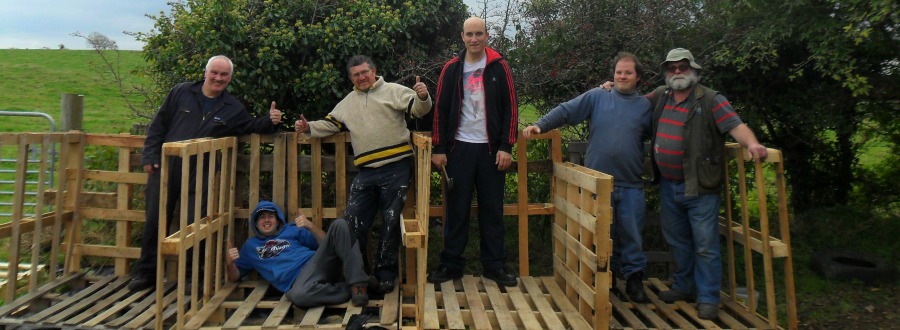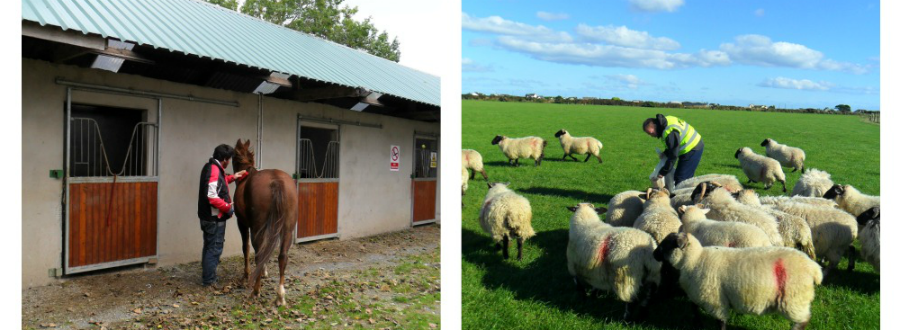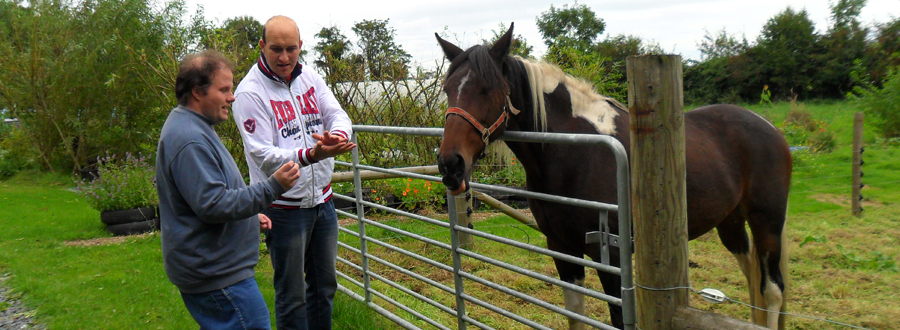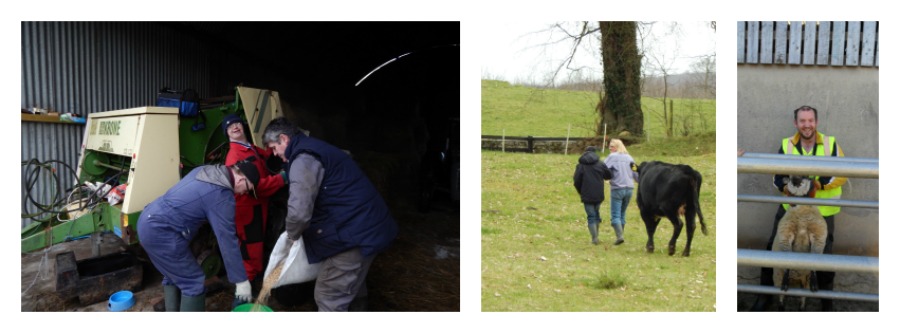FAQs
What is Social Farming?
Social Farming is the practice of offering family farms as a form of social service. The farm is not a specialised treatment farm; rather the farm remains a typical working farm where people in need of support can benefit from participation in the farms' activities in a non-clinical environment. It also creates the opportunity to reconnect farmers with their local communities through the opening up of their farms as part of the social support system of the community.
What is the aim of the Social Farming Across Borders Project?
The Social Farming Across Borders (SoFAB) project promotes Social Farming as a viable option for achieving improved quality of life for people who use health and social services as well as farm families, through enhancing social inclusion and connecting farmers with their communities.
What does the Social Farming Across Borders Project do?
The project is a cross border EU INTERREG IVA Programme funded project. It provides information on Social Farming and is facilitating the development of a cross border cross sector network to further support the development of Social Farming in the Region. The project will establish 20 pilot farms in the region to enhance the ability of farmers to provide social Farming and test the training and support needed to make is a viable option in the furture.
Where is the Social Farming Across Borders project based?
The project area where training provision, network development and delivery of pilot farms shall be conducted is the border counties of Ireland and all counties in Northern Ireland. These counties include: Antrim, Armagh, Cavan, Donegal, Down, Fermanagh, Leitrim, Londonderry, Louth, Monaghan, Tyrone and Sligo. The project office base is in Drumshanbo, Co Leitrim and there is a research office based at Loughry College, Cookstown, Co Tyrone.
Who can use Social Farming services?
People that have successfully used social Farm services include: people with mental health difficulties and people with disabilities (intellectual, physical and sensory), services for older people, children, people availing of drug/ alcohol rehabilitation services and prisoner rehabilitation services among others.
Who can benefit from Social Farming services?
The person that uses services has the additional choice of selecting a working farm as their day service support and having the opportunity to engage with farming activities whether working with animals or plants. Farming also
provides the concurrent opportunity to engage in physical outdoor activity and to be involved in meaningful activities in a family environment. Social Care providers have the opportunity to partner with farmers to provide further choice for the people that use their services in the development of their person centred plans. Farmers have the opportunity to augment their income through the development of social service provision, further utilising their farming skills and farm.
How will the SoFAB project deliver the practical action of Social Farming?
During the project lifetime, 20 pilot farms in the project area will participate in the practice of Social Farming. Each will receive prior and on-going training and support from the project personnel. In addition there will be training
available for 30 people outside of the pilot group, and the project shall publish a handbook on Guidelines for the Delivery of Social Farming.
What does it mean to be a Pilot Farm?
Over the autumn and winter of 2012 there will be 20 pilot farms established in the project area selected from the SoFAB network. The successful pilots will receive prior training to enable them to participate in the pilot.
How will pilots farms be selected?
Criteria for pilot selection is currently being devised, with input from the network, Project Advisory Committee and Project Steering Committee. Once agreed the criteria will be posted on the web site and communicated directly to
all individuals and organisations who have expressed an interest in Social Farming Across Borders.
How to obtain information on the SoFAB project and Social Farming in general?
Persons within the project area wanting more information on participation can request to be placed on the SoFAB Network contact data base through an expression of interest form. To contact us clcik here. The network members will receive periodic information and invitations to participate in events. A new public web site will be launched in September 2012, which will provide information on the SoFAB project and aspects of Social Farming. The Project will facilitate the establishment of a network within the project area for the purposes of skills exchange and encouraging information sharing. SoFAB will have a presence at national farming events and local farming and health and social services events, on both sides of the Border. The project will host 2 major conferences as well as other information events and seminars. Notice of all these events will be posted on the web site and those registered on the INISF contact database will be contacted.
How shall the SoFAB project highlight models of best practice?
The project will disseminate information, facilitate network visits to already functioning Social Farms in the UK and Ireland, develop training programmes and provide information locally, nationally and internationally of our
experiences. Accounts of these visits will be posted on the web site and will form articles within newsletters for the project area. The Project shall host 2 major conferences, where the results of the SoFAB pilot and other best practice will be highlighted. The Project Advisory Committee will also contribute to the knowledge base of best practice.
How has the SoFAB project come about?
Across Europe there is steadily increasing evidence and experience of the health, economic and societal benefits of Social and Care farming. From 2006-2008 Ireland was involved in the So Far Project. The So Far project involved 7 countries including: Italy, the Netherlands, Germany, Belgium, France, Slovenia and Ireland Since that time a series of conferences, seminars and platform meetings have taken place, giving rise to the
development of the SoFAB project.
Who are the lead partners in the SoFAB project?
The organisations with responsibility to deliver the SoFAB Project are University College Dublin (Lead Partner), Queen’s University Belfast and Leitrim Development Company while the representatives from Department of
Agriculture and Rural Development Northern Ireland and the Colleges of Agriculture Food and Rural Enterprise in Northern Ireland are involved as members of the Project Steering Committee. The Project is also guided by an
independent Advisory Group; comprising of representatives with experience of Social and Care Farming in the UK, Scotland and Ireland, as well as representatives from Health Services in NI and ROI and SOFAB Network members.
